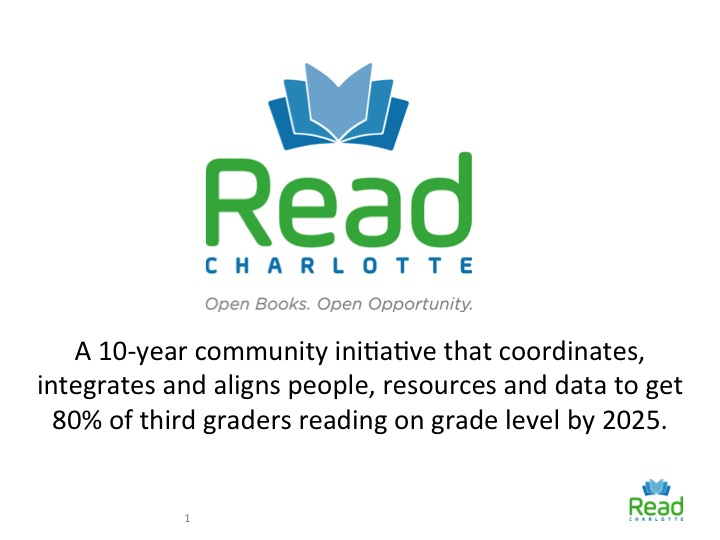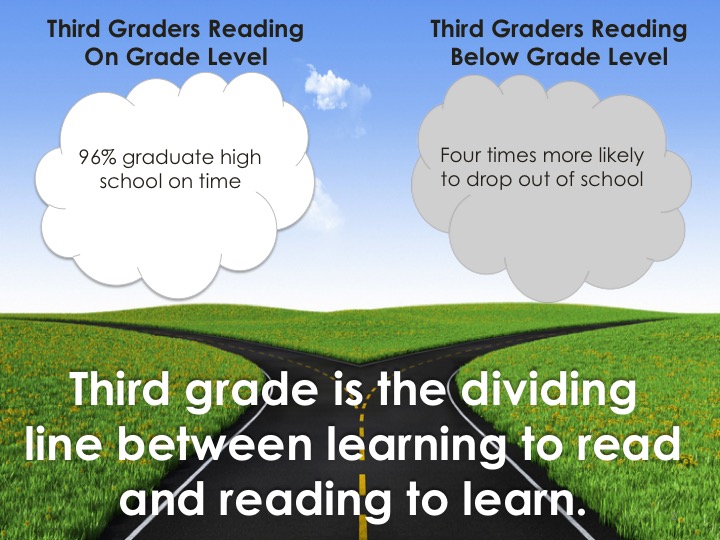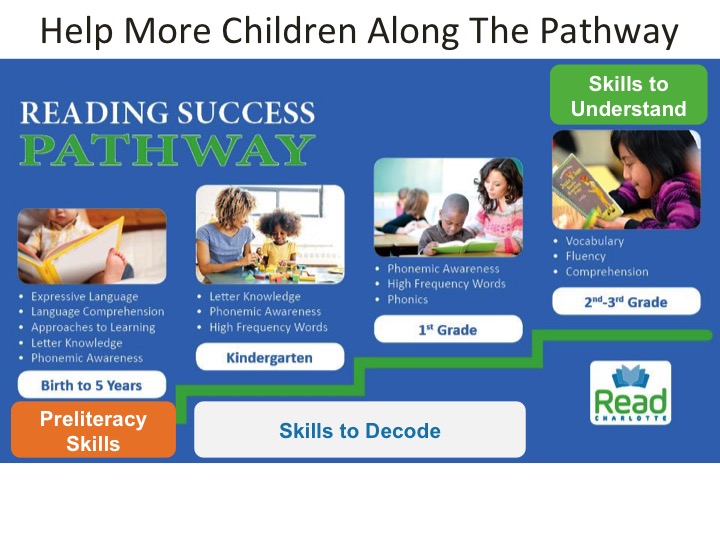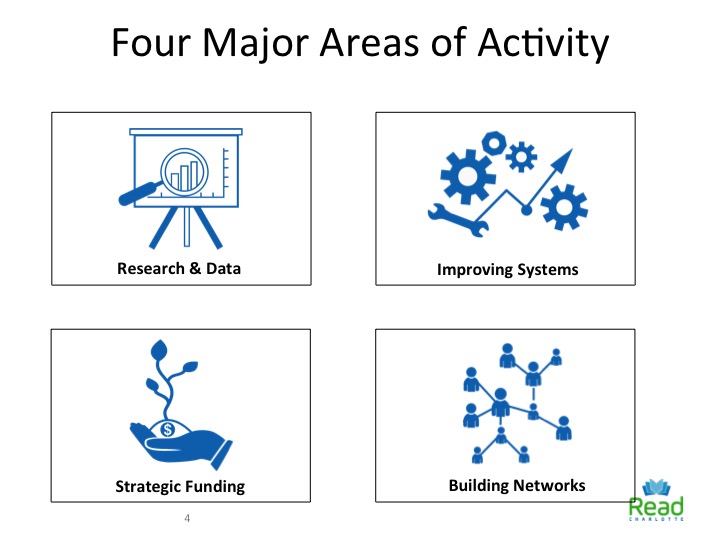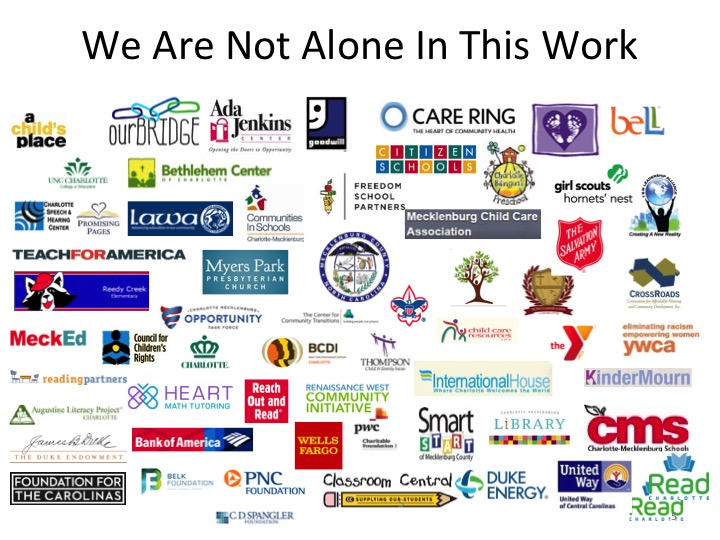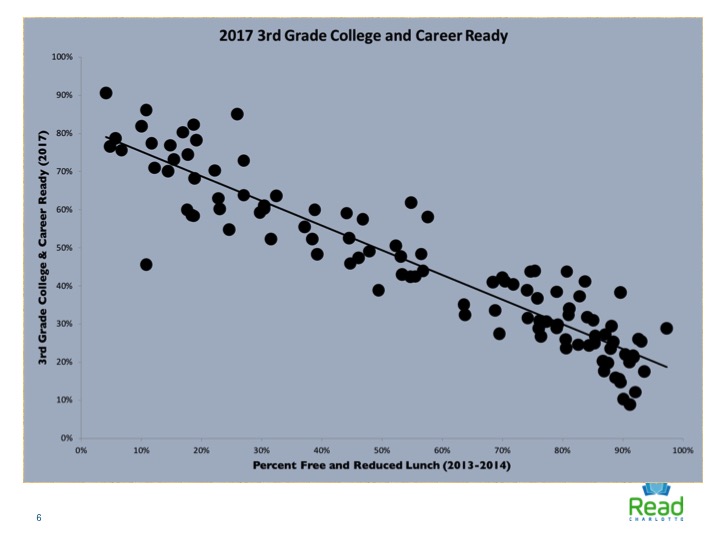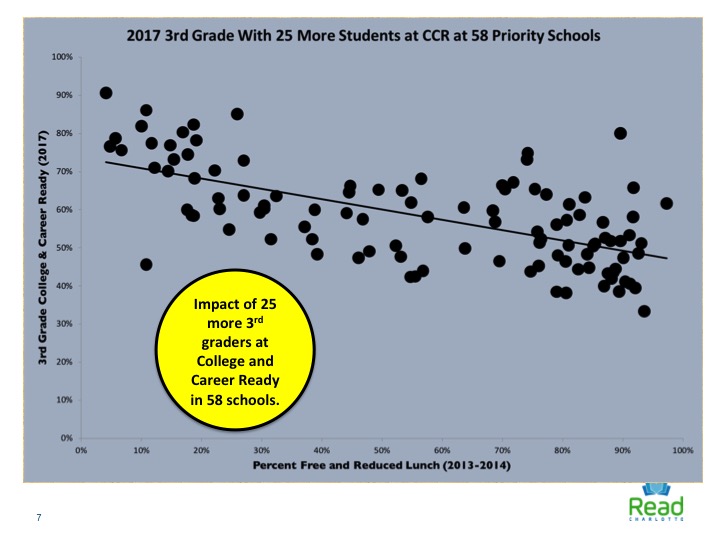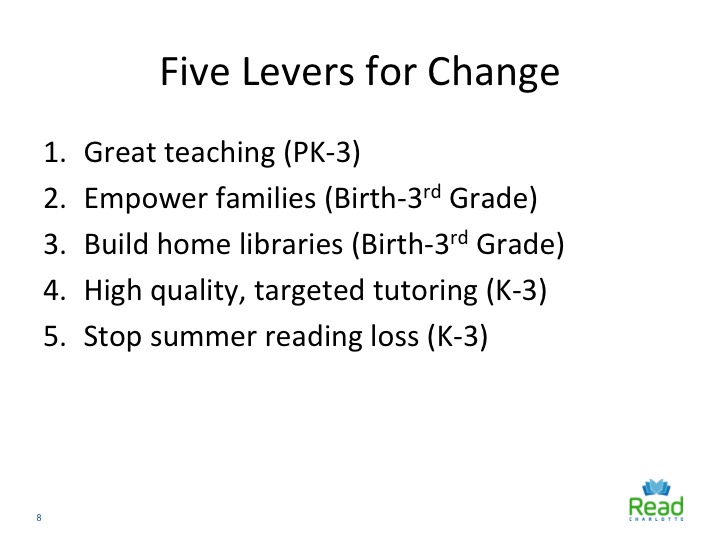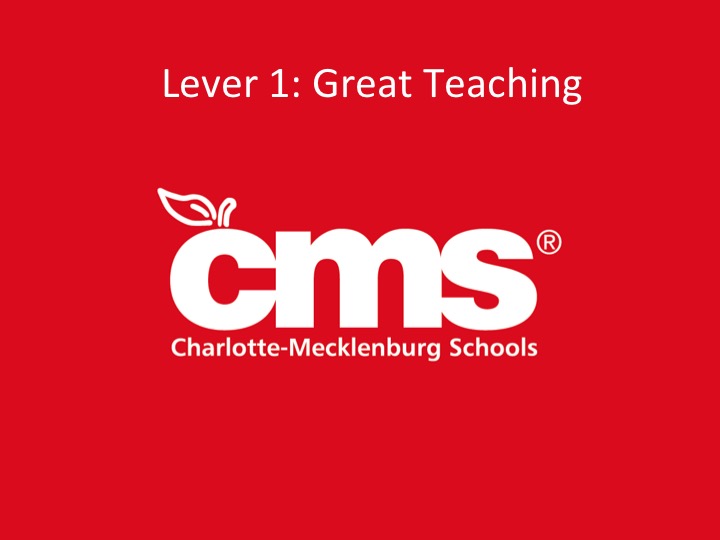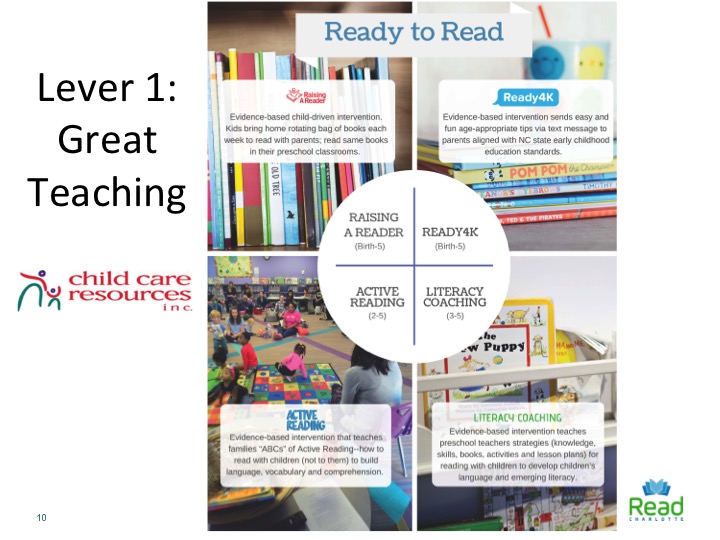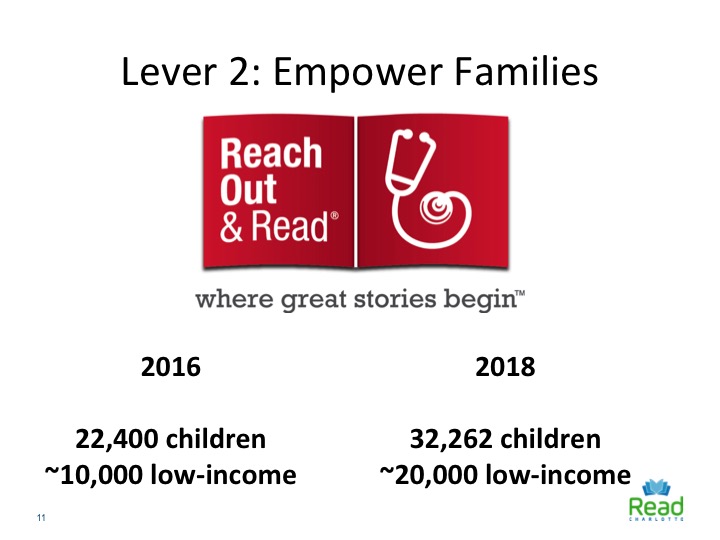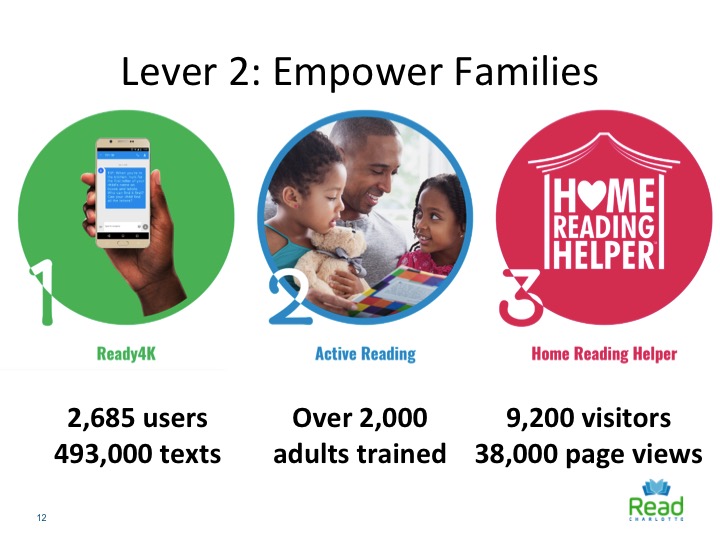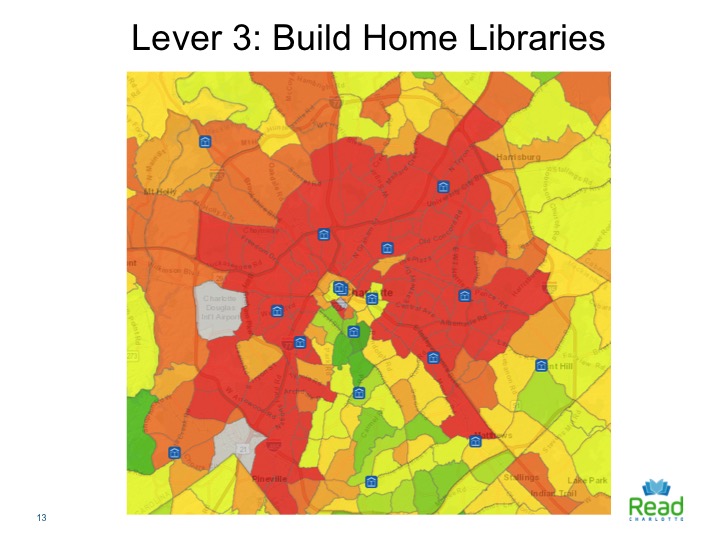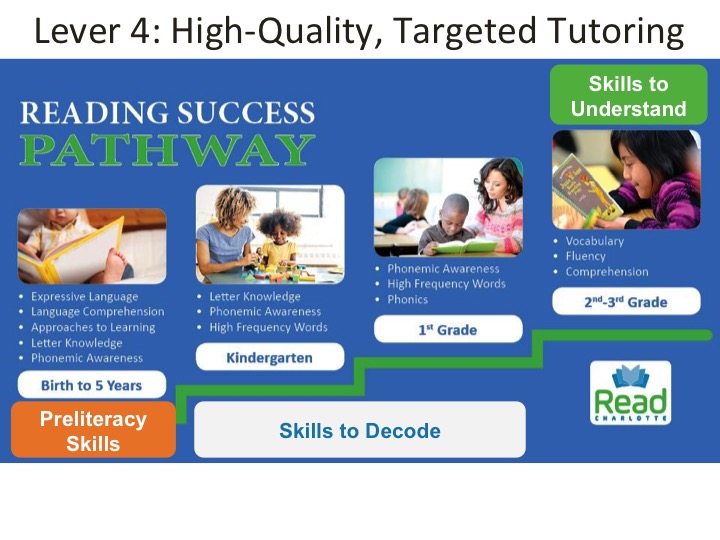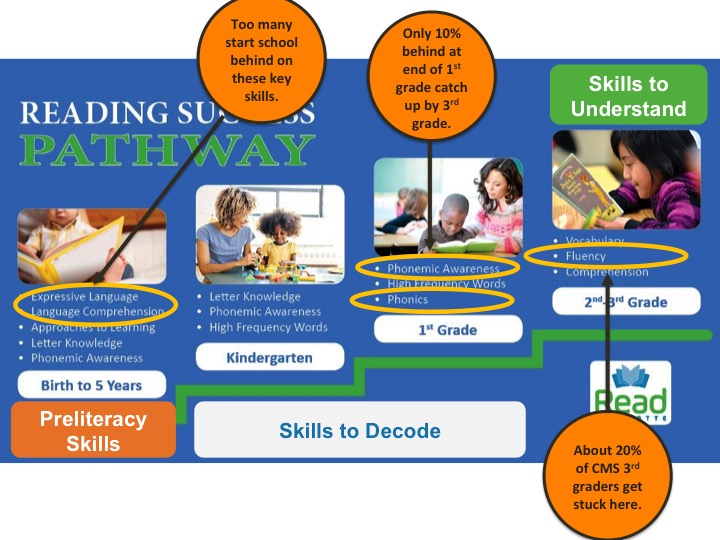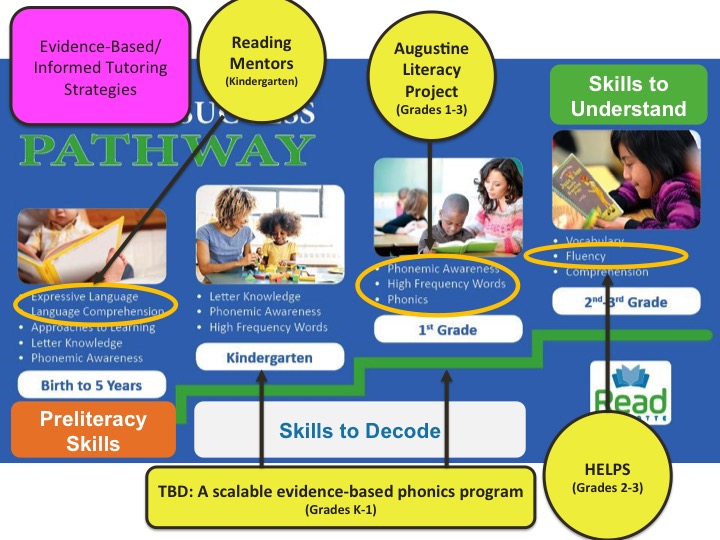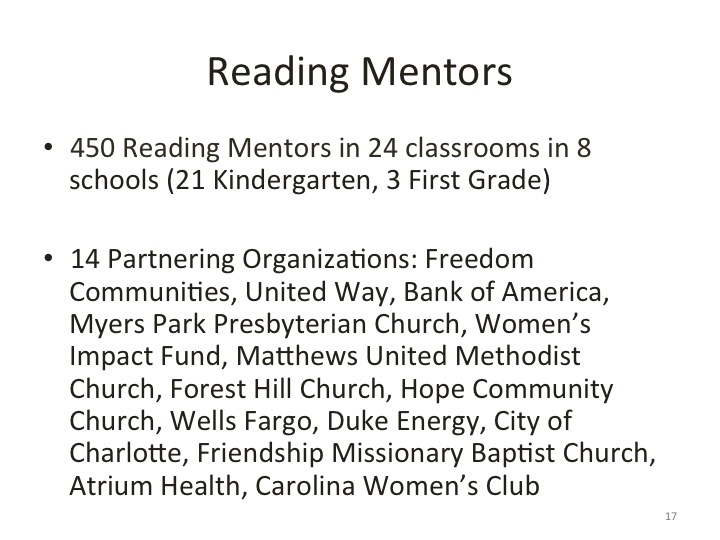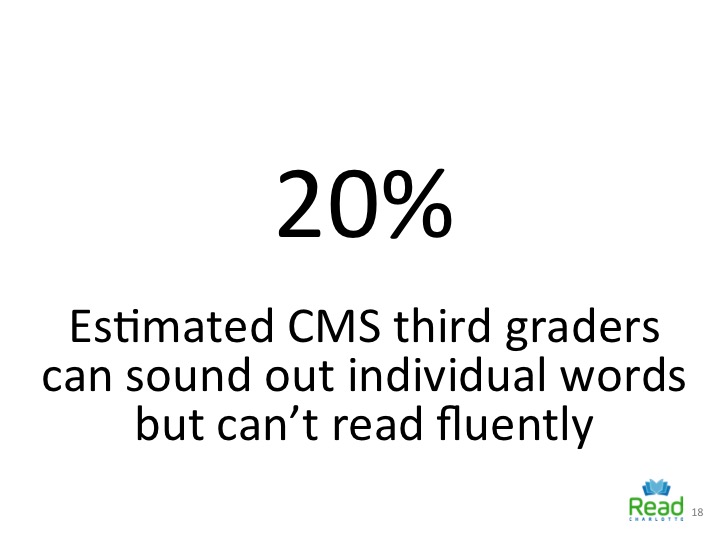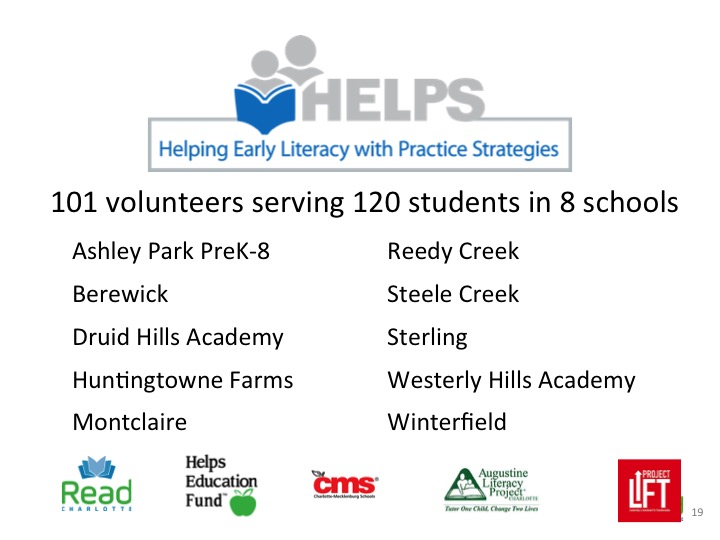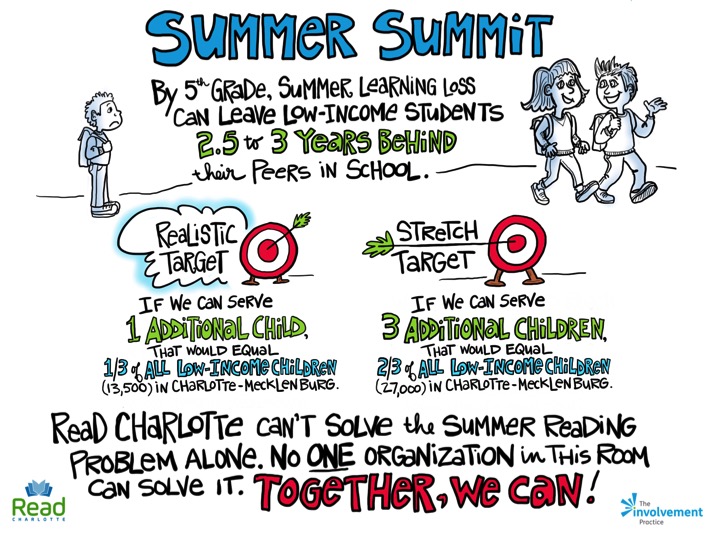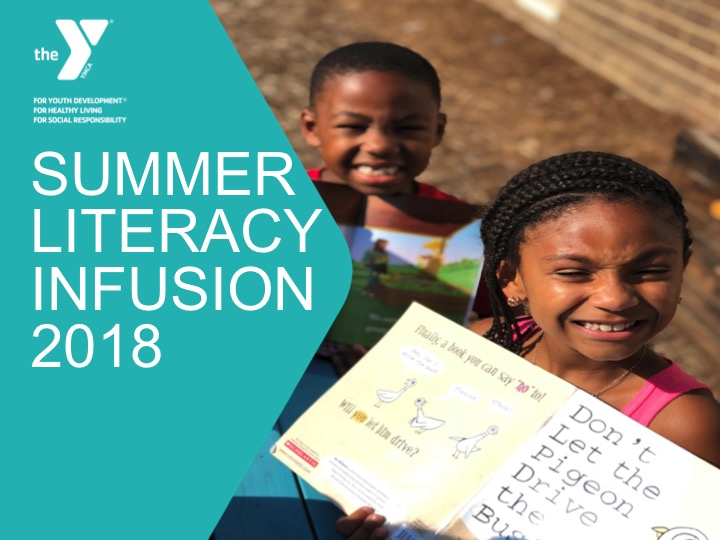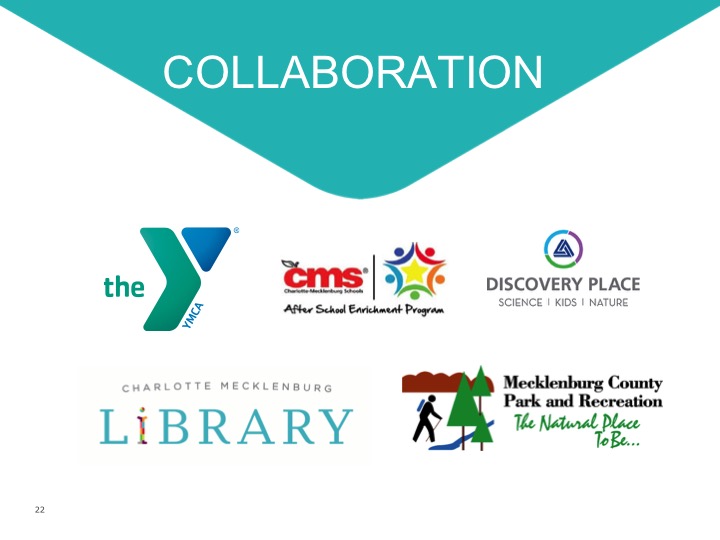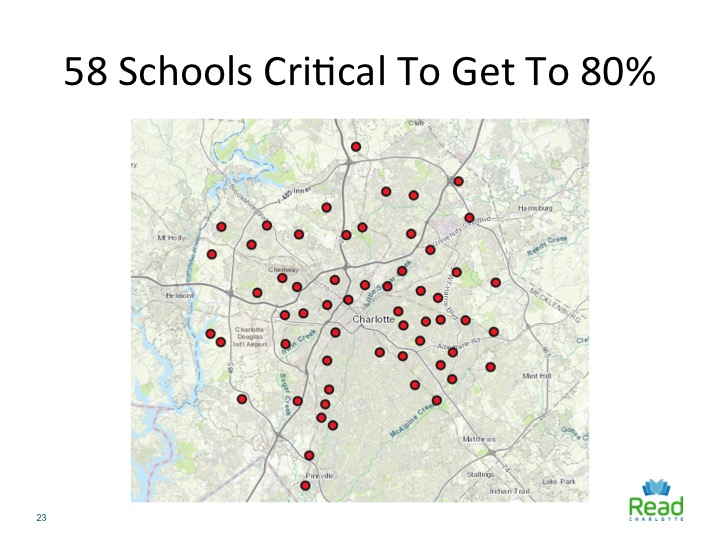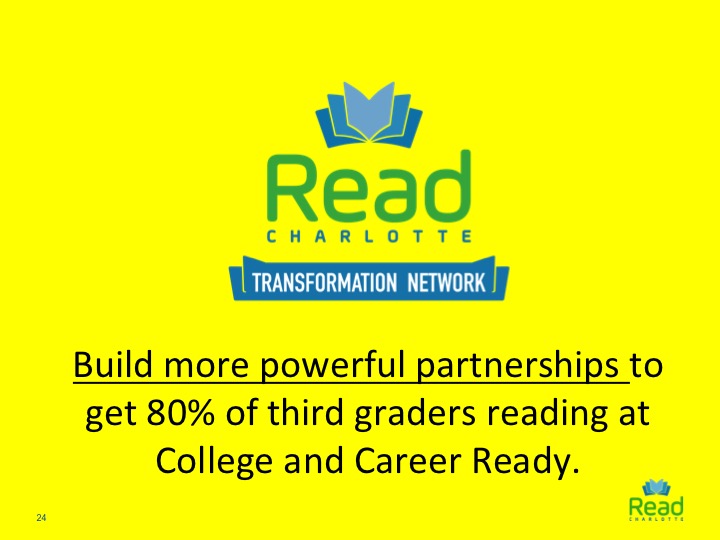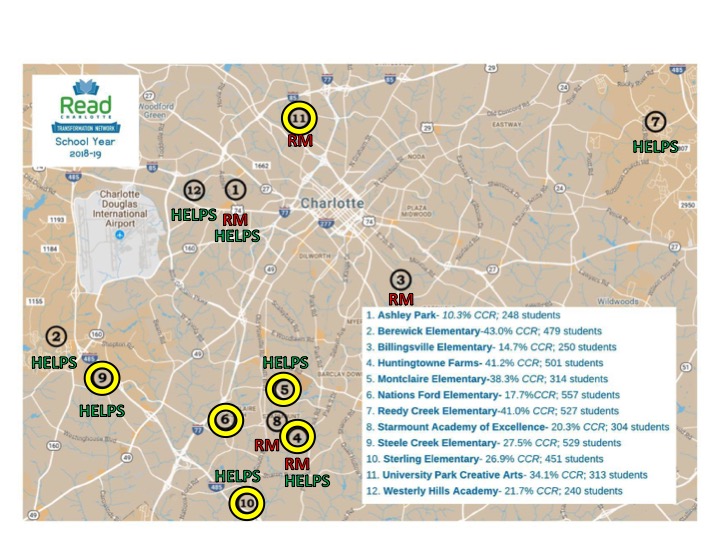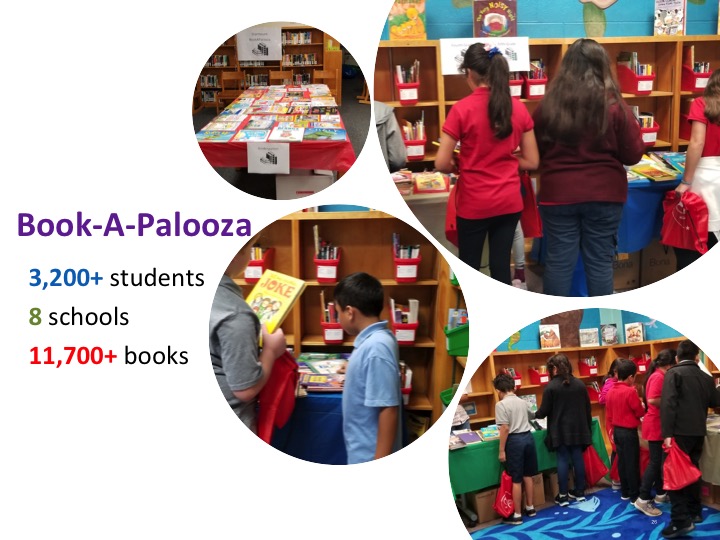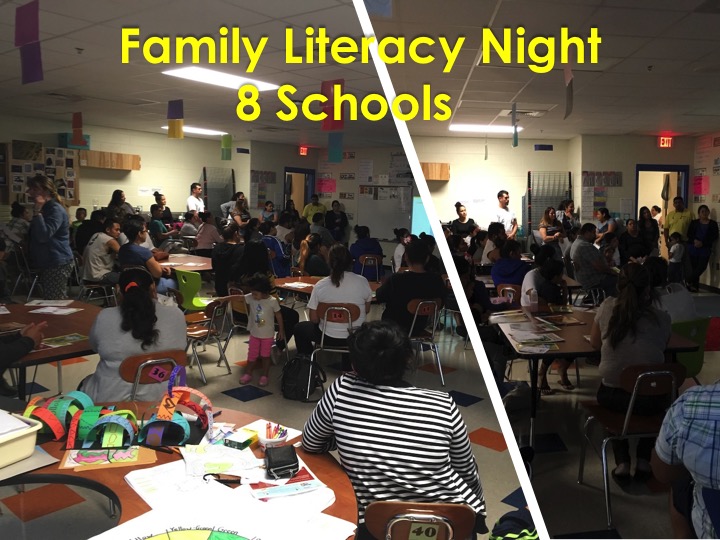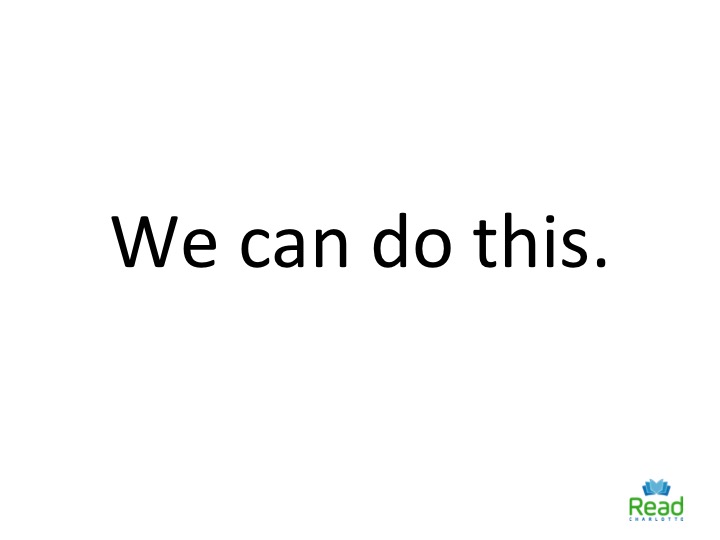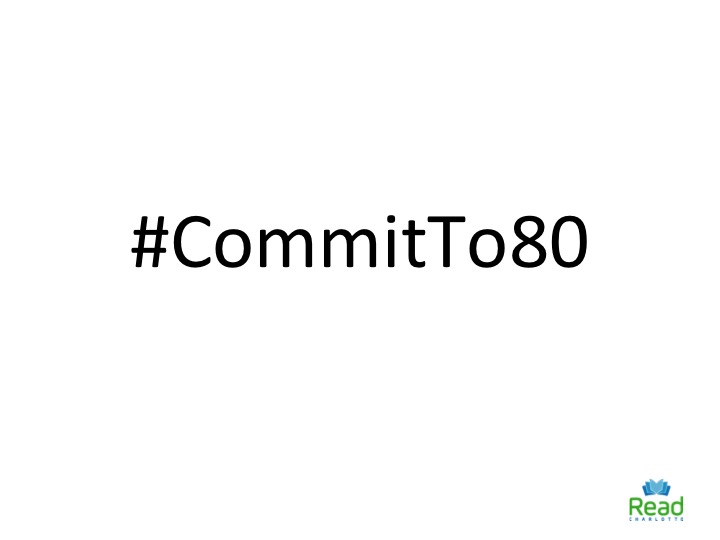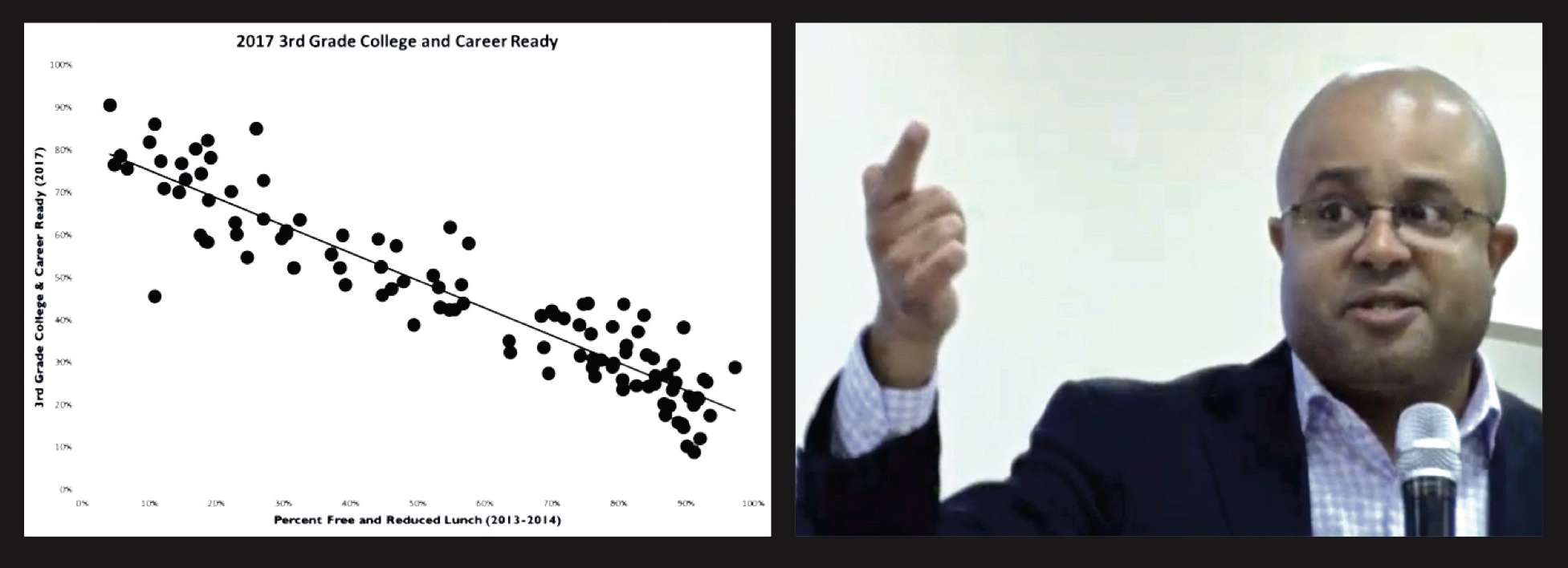
Chart illustrates how, on a schoolwide basis, reading test scores tend to fall as the prevalence of family poverty at a school increases. At right, Read Charlotte’s Munro Richardson.
Dec. 4, 2018
If only, with a tip of his right finger, Munro Richardson could lift the right end of the line up, up and up. The line represents the hard reality that many children living in poverty come to kindergarten without the preparation for reading that their more well-off peers do, and that without determined and intensive intervention, they will enter first grade behind, will leave third grade without the skills to read well, and will never catch up. It’s an old story. Similar charts sometimes focusing on reading, sometimes focusing on overall academic achievement, have been put in front of Charlotte parents and policymakers for more than a decade.
Richardson made the case Tuesday that schools are a key to breaking the linkage between family poverty and overall reading achievement, but that they cannot do it alone. Hence, Read Charlotte is promoting work by parents, and by reading volunteers, to use the most effective methods available to assist children on their path toward reading fluency.
And looking toward the future, Richardson noted that in another city where he worked on this issue, a key component in the effort was a focus on adult literacy – that is, directly assisting the children’s first teachers – parents – in their own struggles to achieve reading fluency.
The slides shown during Richardson’s presentation are below the video. The full set of slides, in a PDF file, may be downloaded here. Richardson also made available to Forum participants four information cards (three of them bilingual) that are here here here and here.
In the video below, Richardson’s presentation begins at minute 7:50. The Q&A follows at minute 33:01.
